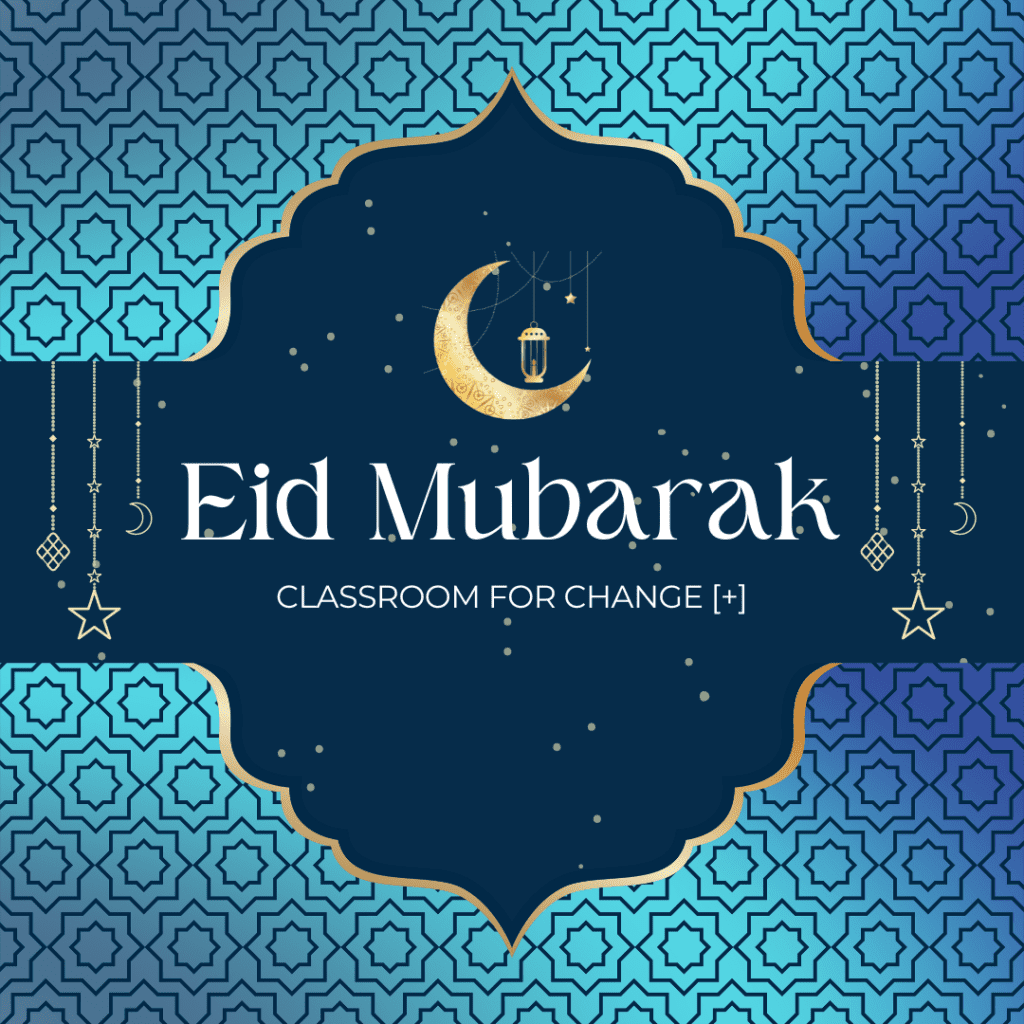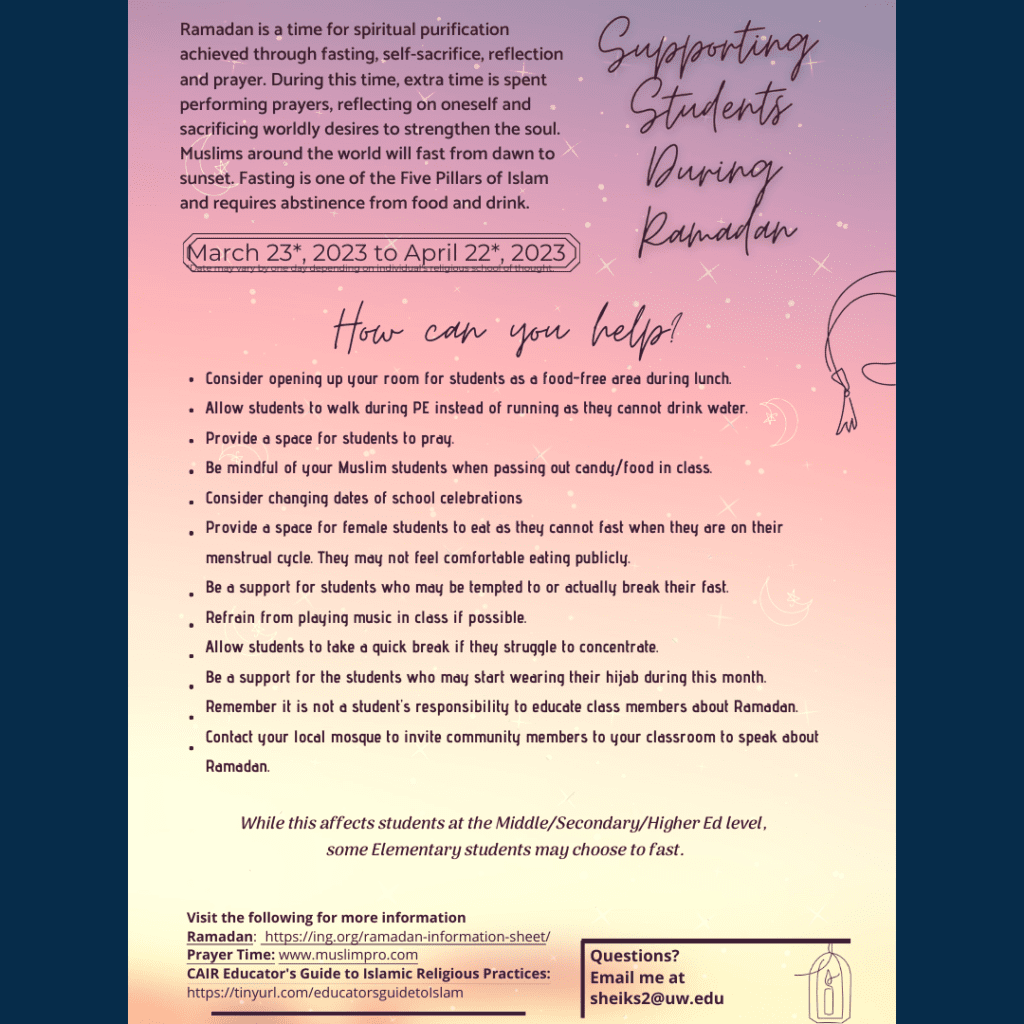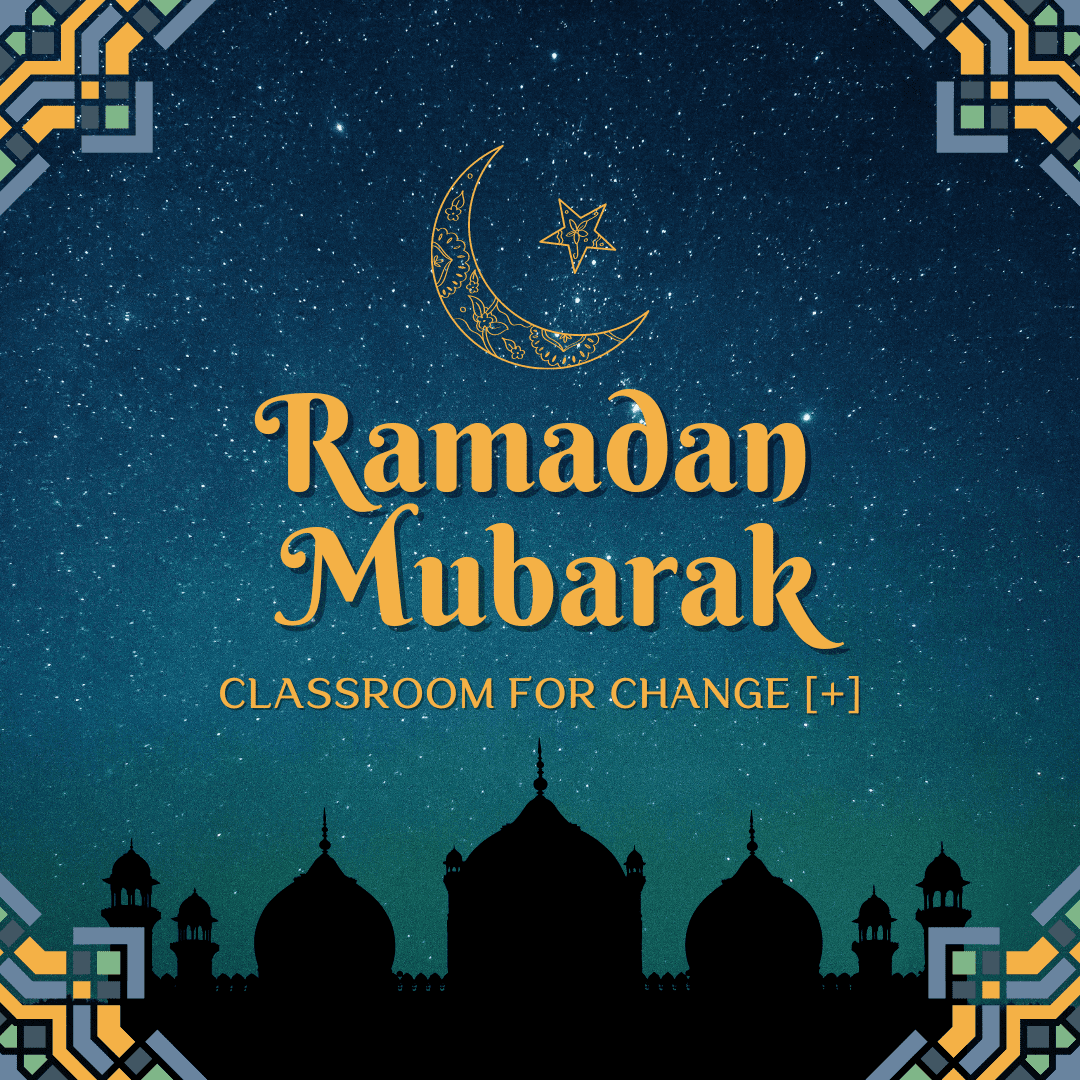topics
Hey changemaker!
As a former elementary, secondary, and special education teacher turned teacher educator and now PhD Candidate, I have spent nearly my whole life in education. If you care about education, literacy, and justice and social change, you are in the right place. Welcome, I'm so glad you're here.
Soundtrack for Change
Music that moves, motivates,
+ inspires change
What You Need to Know About the Holy Month of Ramadan + the Festival of Eid al-Fitr
Islam is one of the world’s largest religions, only second to Christianity. Ramadan is the Arabic word for the ninth month in the Islamic calendar. This year, Ramadan begins March 22nd and ends April 20th. Ramadan is a holy month observed by Muslims worldwide during which fasting, prayer, reflection, + community are practiced for 30 days. The Qur’an is read throughout the entire month, and charity, intention, + introspection also play an important role in the Islamic tradition.
During Ramadan, it is common practice for Muslims to fast during the day as well as refrain from impure thoughts and unhealthy behavior. Muslims believe practicing restraint in their desires brings them closer to Allah. Older children and those who are able-bodied fast from dawn to dusk. Age, health, pregnancy, and travel may exempt a person from fasting. At sunset, Muslims gather at home or at mosques to pray and break fast with a shared meal called iftār. Worship often continues at night in congregation at a mosque.
The end of the month marks the conclusion of Ramadan and the start of Eid al-Fitr, which translates to “the festival of the breaking of the fast.” Eid is a celebration that traditionally lasts about three days. The occasion is usually marked by sharing prayer in community. Celebrating with parties, food, new clothes, and gift giving is also common. Donating or giving charity to the poor is one way Muslims prepare for Eid al-Fitr before breaking fast with a special meal in celebration of the holiday.

Helpful Tips + Guidelines
Here are some ways we can be considerate + supportive of our Muslim friends, colleagues, students, etc. during the holy month of Ramadan + the festival of Eid.
☪️ Operate in solidarity with Muslims, not polarity. This means being inclusive and avoiding reactions that are “othering.”
☪️ Be mindful of changes in routine and the effects that come along with lack of sleep, food, and water.
☪️ Make accommodations and find out how to best support Muslims in your community during the holy month.
☪️ Bear in mind, the significance and practice of Ramadan varies from person to person. Muslims are not a monolith.
☪️ Learn more about Ramadan through self-education. Explore resources and build community with others by following accounts where you can grow in your knowledge about Muslim faith, customs, and traditions.
To learn more about Islam, visit the Muslim Unity Center.
Support Students During Ramadan
For Ramadan this year, Classroom For Change teamed up with Sobia Sheikh, an amazing member of our Classroom Community and a National Board Certified high school teacher from Washington state to help inform educators about Ramadan. Sobia is a changemaker who has thoughtfully crafted resources that have served as useful guides to countless teachers across the country. Sobia’s resources provide suggestions to help us support students during the holy month of Ramadan. If you have questions or would like a copy of her PDF resource below, please contact Sobia at sheiks2@uw.edu.

Continue teaching, learning, + leading with Classroom For Change! Sign up for my newsletter to learn more from educator Sobia Sheikh and my friend + colleague Rasha Alkhateeb in our April issue where we share resources and continue the conversation on Ramadan and Eid!
Looking for more changemaking content? Don’t miss a thing. Join our Classroom Community on Instagram @classroomforchange!
References
- “Eid al-Fitr.” Britannica, n.d., https://www.britannica.com/story/eid-al-fitr.
- “Ramadan.” Britannica, 21 April 2023, https://www.britannica.com/topic/Ramadan.
- “Ramadan.” History, 11 April 2023, https://www.history.com/topics/holidays/ramadan.
- “What is Ramadan and when is it?” BBC, 22 March 2023, https://www.bbc.com/news/explainers-56695447.
- “What Is Ramadan? Everything About Muslims’ Holiest Month As Told By Experts.” Newsweek, 1 April 2022, https://www.newsweek.com/what-ramadan-muslim-holiest-month-1694079.
Pin
Share
